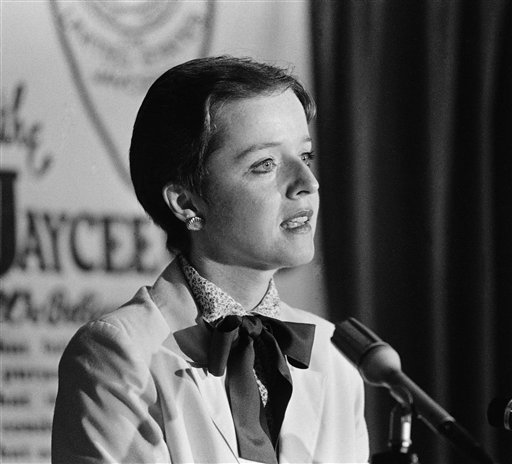Roberts v. United States Jaycees, 468 U.S. 609 (1984), was the first Supreme Court decision to test the constitutional limits of public accommodations laws.
In a unanimous decision, the Court held that Jaycees chapters lacked “the distinctive characteristics that might afford constitutional protection to the decision of its members to exclude women.”
The United States Jaycees, an organization for young business leaders, originally accepted only men as members, but by the early 1970s it was admitting women as associate members with no voting privileges. Two Minnesota chapters sought to admit women as full members, and when the national Jaycees threatened to revoke their charters, the chapters sued under Minnesota’s public accommodations law, which banned discrimination against women by membership organizations.
Jaycees argued that admitting women would violate its right of association
In its defense, the national Jaycees organization argued that forcing it to admit women would violate its First Amendment expressive association rights. The Jaycees noted that their charter established the organization’s central purpose as “promoting the interests of young men,” and that, because of the “gender gap” in American politics, the organization’s positions on political issues might have to be altered if women were admitted.
For these reasons, a federal appeals court ruled 2-1 in favor of the Jaycees.
The Supreme Court, however, ruled against the Jaycees in an opinion written by Justice William J. Brennan Jr.
Justices Sandra Day O’Connor and William H. Rehnquist concurred; Chief Justice Warren E. Burger and Harry A. Blackmun — both from Minnesota — did not participate.
Supreme Court found that sex-discrimination law did not infringe on expressive association rights
Justice Brennan construed the right of expressive association narrowly. He found that the Jaycees had presented no valid evidence that the compelled acceptance of women as members would “change the content or impact of the organization’s speech,” and even suggested that such a conclusion rested on stereotypes about gender roles.
Brennan added that the Jaycees would have lost the case even if the Court had found that Minnesota’s public accommodations law had infringed on the Jaycees’ expressive association rights. He reasoned that because the law advanced the “compelling interest” of eliminating sex discrimination, intrusion into First Amendment rights was permissible.
In her concurring opinion, Justice O’Connor distinguished between expressive associations that exist primarily for expressive purposes, and nonexpressive associations that exist primarily for other purposes. She maintained that the latter type of organizations should receive much less First Amendment protection than the former and concluded that the Jaycees, as primarily a business networking organization, fell squarely into the nonexpressive camp.
Jaycees case was first to weigh First Amdendment rights with anti-discrimination laws
Justice Brennan’s opinion in Roberts suggested that the right of expressive association would be construed very narrowly when it conflicted with public accommodations and other anti-discrimination laws.
As a result, for over a decade lower courts have almost always ruled in favor of the government when such conflicts have arisen.
However, the Supreme Court’s 2000 decision in Boy Scouts of America v. Dale reinvigorated the right of expressive association, implicitly rejecting Justice Brennan’s majority opinion in Roberts in favor of Justice O’Connor’s concurrence.
This article was originally published in 2009. David E. Bernstein is a university professor at the Antonin Scalia Law School, George Mason University, where he teaches constitutional law, among other things. He is the author of You Can’t Say That! The Growing Threat to Civil Liberties From Antidiscrimination Laws (Cato Institute 2003).

